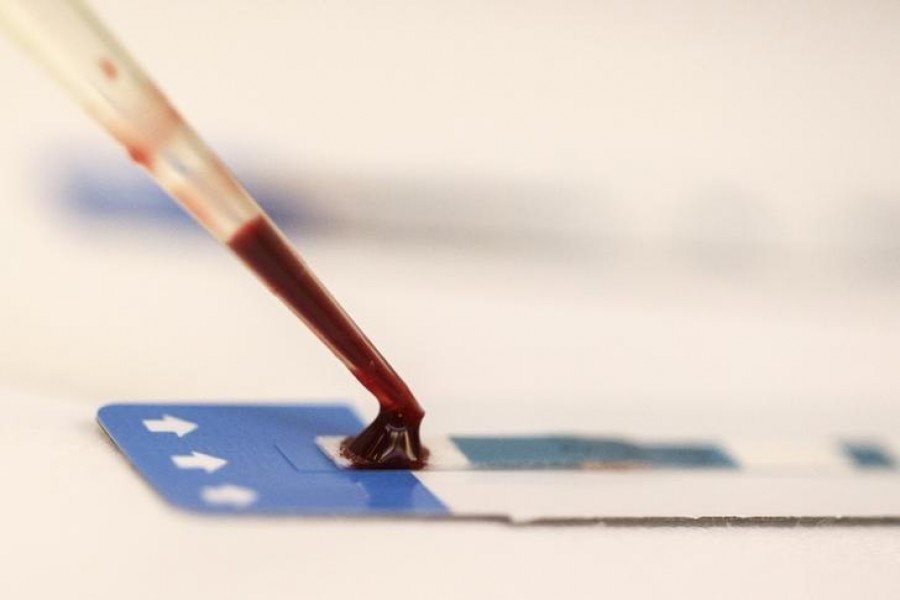US researchers have taken a major step forward in the fight against cancer by developing a single blood test that screens for eight common types of tumours in early stages.
Larger studies of the test, called CancerSEEK, which evaluates cancer-related proteins and gene mutations in the blood, are currently under way, according to research published in the Friday issue of US journal Science, reports Xinhua.
The test was evaluated on 1,005 patients with nonmetastatic, stages I to III cancers of the ovary, liver, stomach, pancreas, aesophagus, colourectum, lung or breast, as well as over 800 healthy control individuals.
It showed that the test was 99 per cent specific, meaning that the likelihood of a healthy individual receiving a false positive result was less than one per cent.
The median overall sensitivity, or the accuracy rate to detect cancer, was 70 per cent, ranging from a high of 98 per cent for ovarian cancer to a low of 33 per cent for breast cancer.
For the five cancers that have no screening tests -- ovarian, liver, stomach, pancreatic and aesophageal cancers -- sensitivity ranged from 69 per cent to 98 per cent.
In 83 per cent of cases, the test also provided information about the tissue-of-origin of the cancer - a feat that has been difficult in past.
"This test represents the next step in changing the focus of cancer research from late-stage disease to early disease, which I believe will be critical to reducing cancer deaths in the long term," study author Bert Vogelstein of the Johns Hopkins University said in a statement.
CancerSEEK is noninvasive and works by assessing mutations in 16 cancer genes as well as the levels of eight circulating protein biomarkers.
In principle, it should be administered by primary care providers at the time of other routine blood work.
The researchers estimated that the cost may be less than 500 US dollars, which is comparable to or lower than current screening tests for single cancer types.
Mangesh Thorat, deputy Director of the Barts Clinical Trials Unit at Queen Mary University of London, said the test looks promising but a significant amount of further research is needed. .
"This is only a case-control study, and therefore needs further evaluation in large cohorts more representative of general population where such screening might be introduced," Thorat said.
He also said the sensitivity of the test in stage I cancer is quite low at about 40 per cent,
"Even with stage I and II combined it appears to be around 60 per cent. So the test will still miss a large proportion of cancers at the stage where we want to diagnose them," Thorat added.


